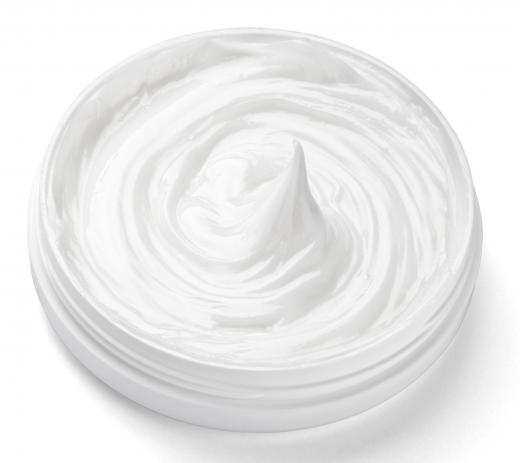Hereditary dark circles are dark circles a person inherits from a parent, grandparent, or some other relative higher up on the family tree. The person is born with them, or with the ability to develop them, and doesn’t do anything or experience any outside stimuli, such as poor nutrition or fatigue, that directly causes them. The various methods for minimizing or treating dark circles vary from temporary to permanent, and can include everything from lifestyle changes to cosmetics to medical options. Unfortunately, treating hereditary dark circles isn’t often easy and can require a dermatologist’s or cosmetic surgeon’s expert advice.
Experts provide an assortment of causes of genetic dark circles. Two of the most common explanations include thin skin and hyper-pigmentation under the eye. In some cases, it is thought that extremely thin skin under the eye makes blood vessels close to the skin’s surface more visible, leading to dark eye circles. In other cases, experts believe hyper-pigmentation, a condition that causes some areas of the skin to become darker than other parts, causes these dark circles. This is genetic hyper-pigmentation, rather than hyper-pigmentation caused by any kind of health condition.

Lifestyle issues are common factors that can cause and worsen the appearance of both regular and hereditary dark circles. For example, too much sun exposure can worsen genetic dark circles. Lack of sleep, poor nutrition, and dehydration can increase the appearance of dark circles, too. Smoking also can cause genetic dark circles to appear darker than normal. Most health professionals recommend avoiding these triggers and maintaining a healthy diet and sleep schedule in order to diminish the appearance of dark circles.

An assortment of methods can help with temporarily diminishing or reducing dark circles. Cosmetics, such as under-eye concealer, can help mask dark circles. This is perhaps the shortest-term solution, as makeup must be applied every day. Some creams and oils are designed to diminish dark circles with ingredients intended to strengthen capillaries, boost collagen production, and smooth the skin. Such topical solutions can take anywhere from days to weeks to produce visible results, and typically require continued use for results maintenance.

Yet, these kinds of dark circles treatments aren’t normally successful for people with hereditary dark circles. Some experts recommend talking with a dermatologist or cosmetic surgeon about more drastic, and possibly more permanent, treatments for hereditary dark circles. Such possibilities include targeting the skin under the eye with laser resurfacing, a chemical peel, or a medical grade bleaching or lightening cream.
